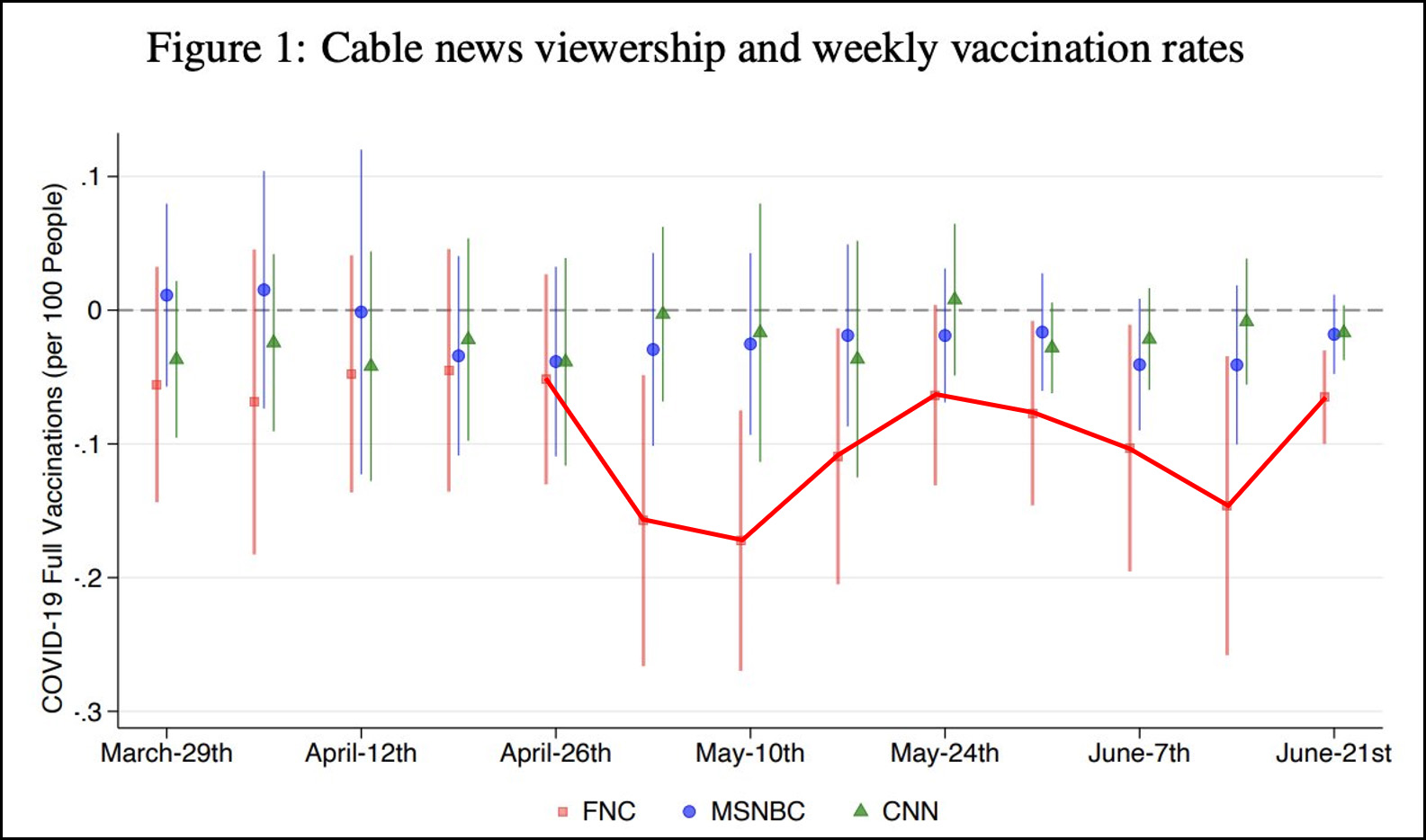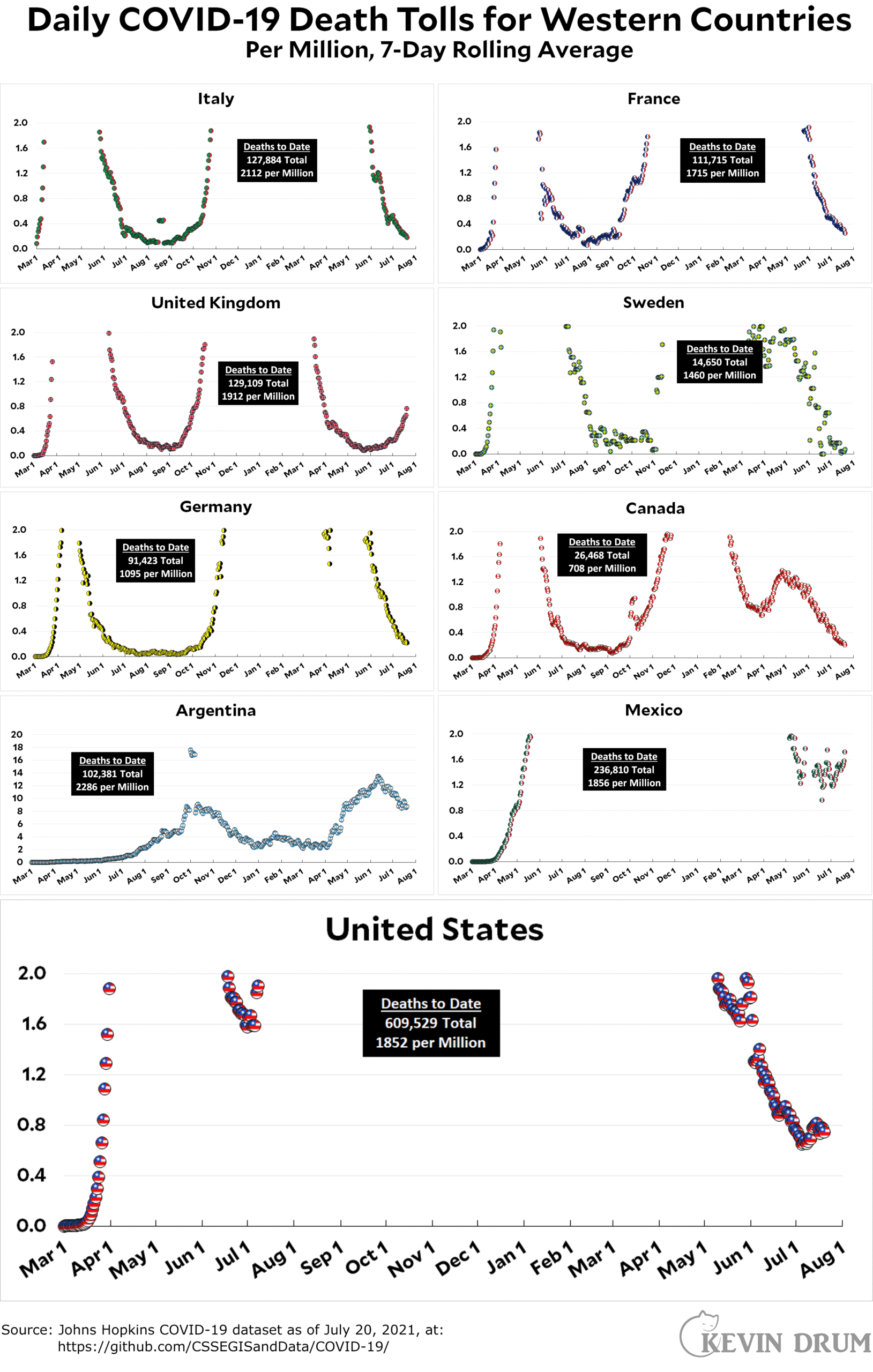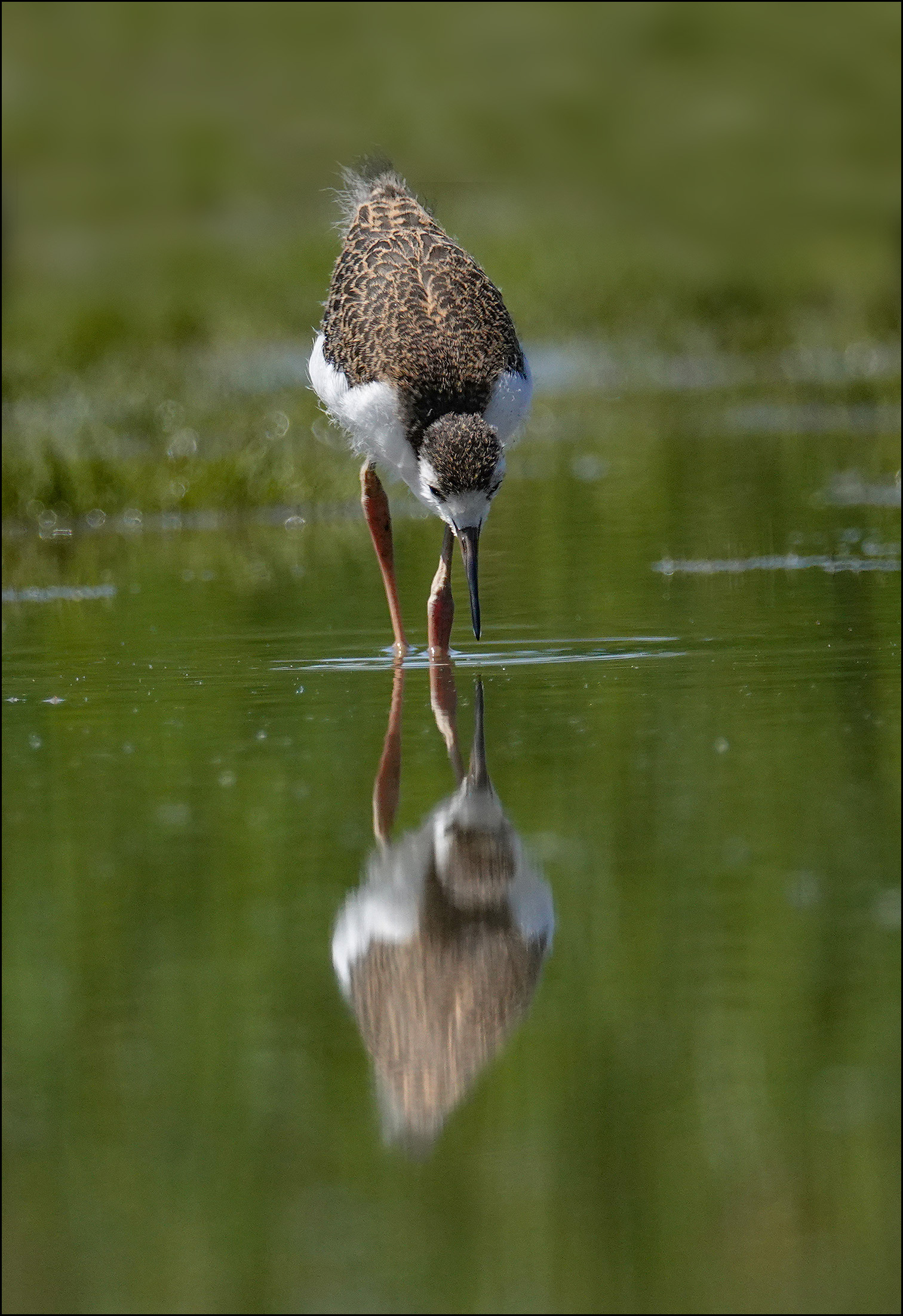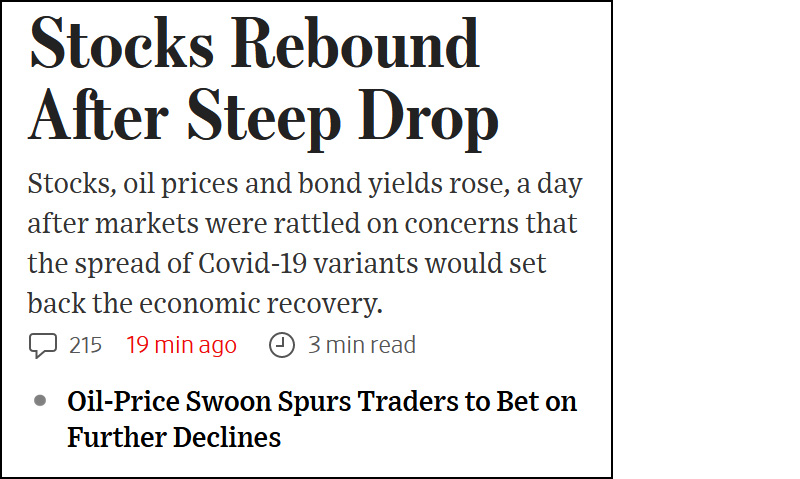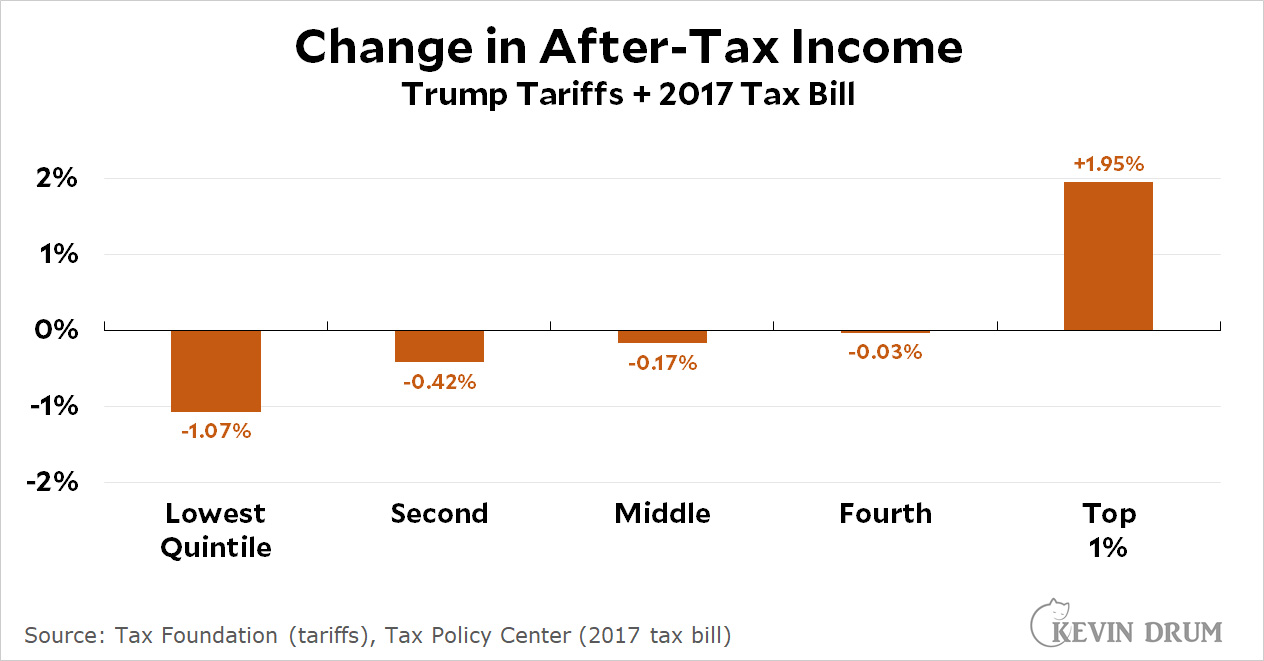Here is Farhad Manjoo in the New York Times today:
Researchers who study vaccine hesitancy say that social networks play a huge role in the spread of dangerous lies about vaccines.
Hmmm. Clicking the link brings up an article by the authors of one of these studies. Here's what it says:
We found that the use of social media to organise offline action is strongly associated with the perception that vaccinations are unsafe.
That's a rather different claim, so let's take a look at the study itself. Here's the main result:
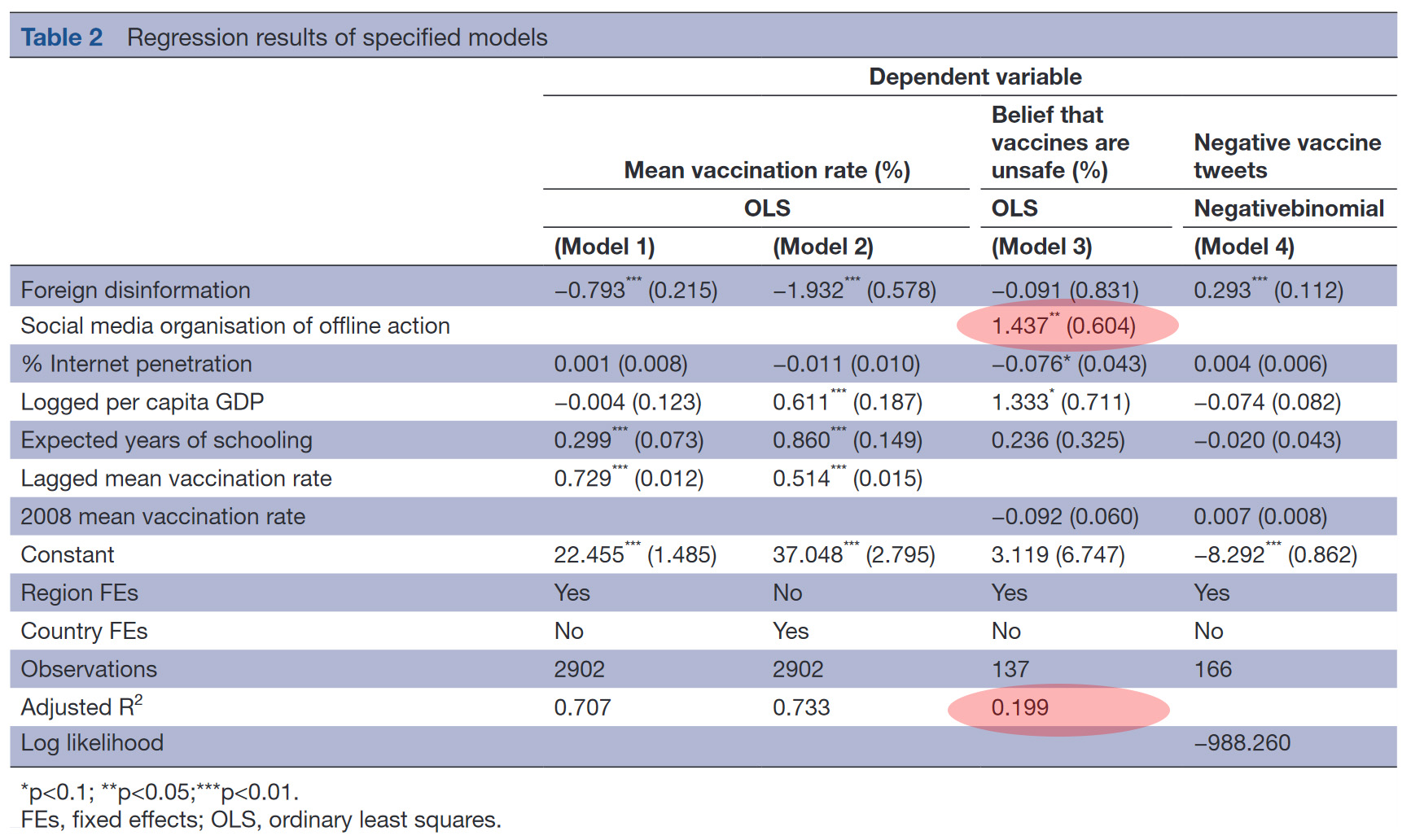
This requires some unpacking. The authors used a panel of experts to rank countries based on "average people’s use of social media to organise offline action." Each country was ranked from one to five. So what the top red oval tells us is that a difference of one rank (say, between 3 and 4) increases the belief that vaccines are unsafe by 1.437 percentage points. The bottom oval shows R², a statistical measure of how much this explains. In this case, changes in rank explain about a fifth of a country's belief in the safety of vaccines.
That may seem like a fair distance from a "huge role," but wait. It gets worse. The entire study is based on a convenience sample of tweets worldwide. And it's all limited to the years 2018-19, which means it's a measure of generic anti-vaxx sentiment. It has nothing specifically to do with COVID-19 vaccines.
Generally speaking, this study relies on so many different measurements, each with its own drawbacks and error bars, that it strikes me as a bit of a dog's breakfast. Still, it's a decent effort that points the way for future studies. That's not the problem.
The problem is that the authors pretty clearly implied a stronger result than they actually have. Manjoo then took that and exaggerated it even further. What we end up with is a claim that social media plays a "huge role" in vaccine disinformation when the study in question pretty clearly suggests exactly the opposite: a fairly modest effect of—maybe—a few percentage points in public attitudes. Thus are internet legends born.
POSTSCRIPT: The study uses the same methodology to look at foreign disinformation and finds a somewhat stronger effect. However, since this is based on 2018-19 data, it provides no clue about the real-world effect of this on the COVID-19 vaccine. This is why I ignored it.


